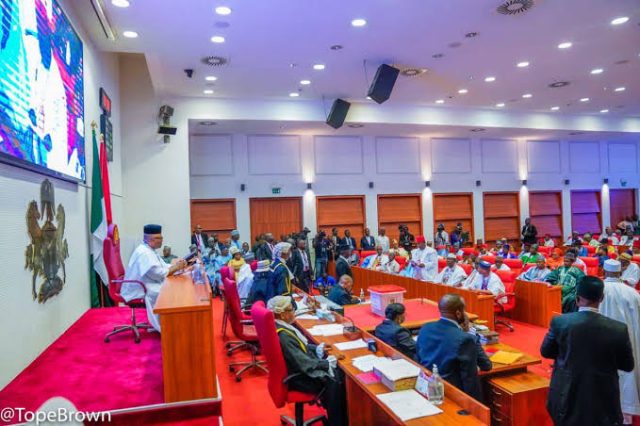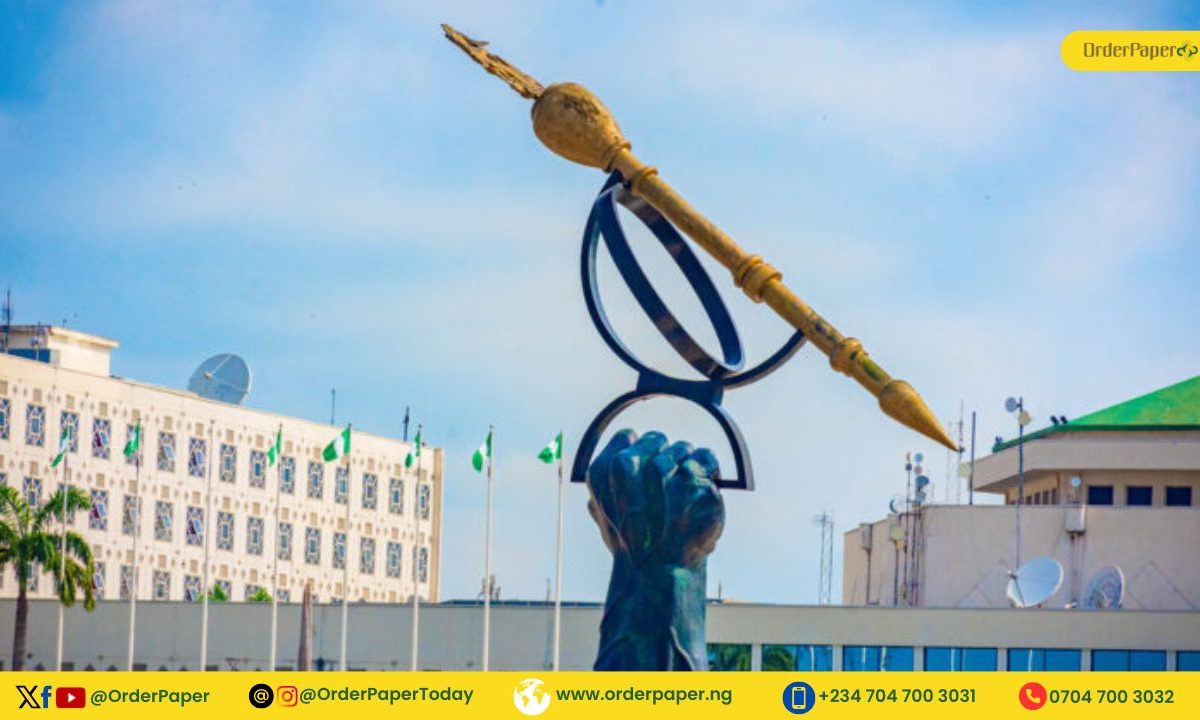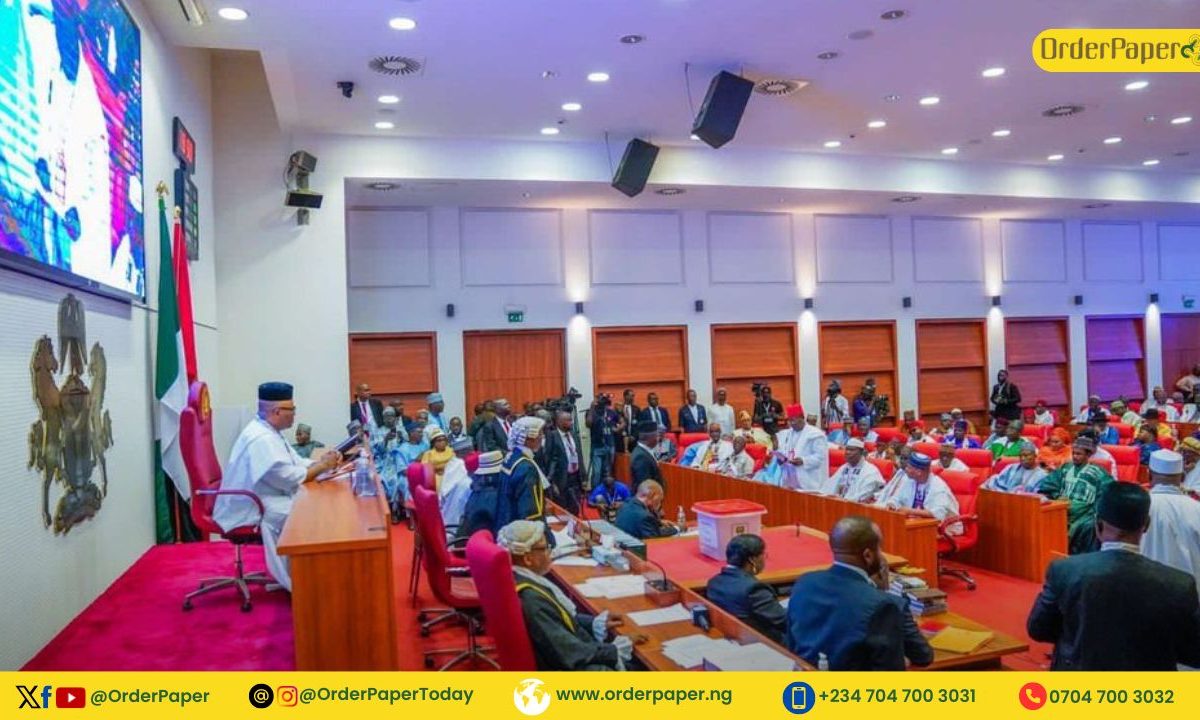Senators debated and passed the extension of the 2023 supplementary appropriation act from June 30th to December 31st, 2024

With just four days left until the deadline for the 2023 supplementary appropriation, the Senate has extended the implementation of the budget to December 31st, 2024.
This followed the presentation and subsequent second reading of a bill titled, “A bill for an Act to amend the 2023 Supplementary Appropriation Act to further extend its implementation to 31st December, 2024,” during Thursday’s plenary.
OrderPaper recalls that in December 2023, both the Senate and House of Representatives extended the implementation period for the capital component of the budget from December 31, 2023 to March 31, 2024.
This is as it extended the N2.17 trillion 2023 supplementary appropriation passed in November 2023.
Also, in March, both chambers again extended the implementation period for the appropriation from March 31, 2024, to June 30, 2024.
Prior to the consideration of the bill furing Thursday’s plenary, President Bola Tinubu requested the Senate’s expeditious consideration for further amendments to the Appropriation Act and Supplementary Appropriation Act (Amendment) Bill.
Shortly after reading the letter from President Tinubu, the Senate immediately went into a closed door session which lasted for about 30 minutes.
Leading the debate of the general principles of the executive bill, Senator Opeyemi Bamidele (APC, Ekiti Central) noted that the bill seeks to amend the 2023 appropriation act, as well as the 2023 supplementary appropriation act and extend the implementation period to the 31st day of December 2024.
He said: “You will recall that on Wednesday, the 20th of January, 2024, these acts were amended to allow for exhaustive implementation of capital projects under the Act. The extension will expire on Sunday, June 24, and many projects are yet to be completed. These bills, therefore, intend to further extend the implementation period of both acts to reinforce the separate Act.
“The bill seeks to amend the 23rd day of December 2024, in view of the strategic importance of some key projects that are near being completed, and to allow for continued implementation for the maximum benefit of the country. On that basis, these will go a long way to avoid the compounding problems of abundant projects.”
READ ALSO: History as President Tinubu signs 2024 budget, extends 2023 supplementary budget
Supporting the passage of the bill, Senator Ahmed Wadada (SDP, Nasarawa West) urged his colleagues to ensure an avoidance of a recurrent extension. According to him, in subsequent cases, it should be carried over.
He said, “As we are extending the budget, we should, as a matter of responsibility, exclude this recurrence. If for instance, in the initial budget, a recurrent shows an item where a seminar or conference would have been attended, but wasn’t attended because there was no fund, now that we are implementing the budget, that means it has to be carried over. We should concentrate more on extending capital item rather than extending both capital and recurrent.”
On his part, Senator Ali Ndume (APC, Borno South) stressed that the main purpose of the extension of the supplementary budget is for the executive to be able to complete capital projects. Speaking further, he said, “we should do such by explicitly including the goals where to indicate that the supplementary budget is not just an all over but an extension to allow the government to complete capital projects.”
In his remark, the President of the Senate, Godswill Akpabio urged the committees on finance and appropriation and other committees that have roles to play in the process to ask questions where necessary to avoid a repetition of an extension.
Following the debate on the bill, the Senate immediately resolved into the committee on supply to consider the clauses of the bill which led to its subsequent passage.



